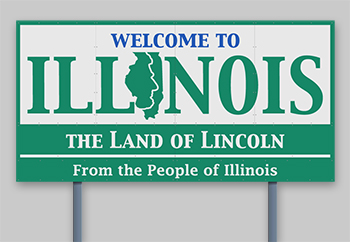Human resources expert weighs in on this important ruling & how it will impact the workplace
 Illinois lawmakers made a historic decision when they voted to legalize recreational marijuana use last Friday. The House of Representatives voted 66-47 to allow possession and sales beginning Jan. 1, 2020. But how will this decision impact employers and the workplace?
Illinois lawmakers made a historic decision when they voted to legalize recreational marijuana use last Friday. The House of Representatives voted 66-47 to allow possession and sales beginning Jan. 1, 2020. But how will this decision impact employers and the workplace?
“Your ability to monitor drug use among your employees is going to depend on whether or not you are a unionized or private workplace,” says Rob Wilson, President of Employco USA (a national employment-solutions firm based in Chicago, IL) and human resources expert. “While you have the right to expect and require sobriety from workers on the job, it can become a bit tricky when you suspect drug use and want to act on your fears.”
Wilson says that if you work in a non-unionized environment, you should ask a supervisor or human resources team member to help you determine if an employee is under the influence of marijuana.
“If your suspicions are backed up by other leaders in your company, you can discipline and even terminate your employee,” says Wilson.
If you work in a collective-bargaining workplace, Wilson says that you should have a series of steps laid out in your handbook that will help everyone understand what the outcome of marijuana use on the job will be.
“These steps might include drug testing, verbal warnings, and even requiring your employee to enroll in a EAP program if they want to keep their job,” says Wilson, referring to Employee Assistance Programs which can offer drug counseling for employees struggling with addiction.
Wilson says that even though Americans’ rights are changing as it relates to marijuana use, employers can still have a zero-tolerance policy about drug use on the job, even if the employee has the legal right to use marijuana recreationally or medically.
“While it is against the law to discriminate against someone simply because they have a medical marijuana card, as this could be seen as discrimination against someone with a disability, you can still require sobriety among your employees and treat marijuana the same way you would alcohol or prescription drugs like Vicodin,” says Wilson. “Whether an employee is driving heavy machinery or approving loans, you need your workers to be clear-headed and capable of performing at a high level.”
For more on this topic, please contact Rob Wilson at rwilson@thewilsoncompanies.com.